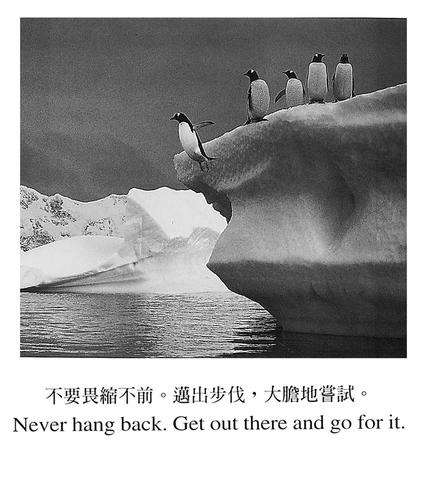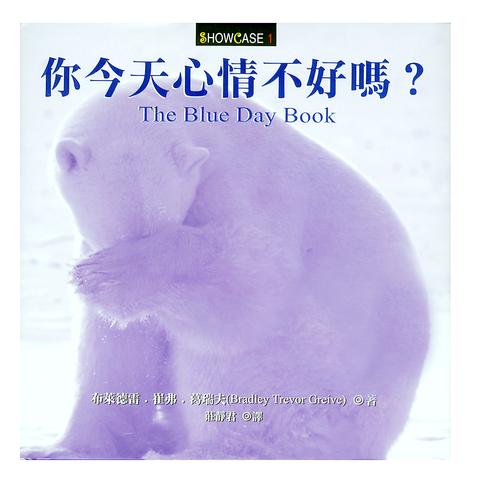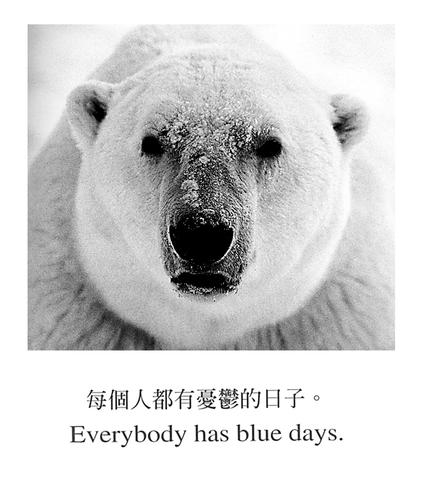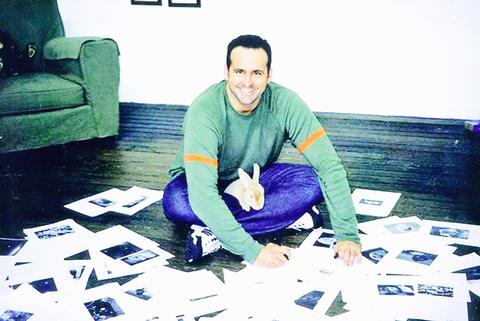It's hard to picture the clean-cut, soft-spoken and easygoing Australian author Bradley Trevor Greive toting the latest in NATO-issue hardware. After all, the contents of his series of bestselling heart-warming illustrated narratives -- The Blue Day Book, Dear Mum and Looking for Mr Right -- are relaxing, thought provoking and most un-war-like.
Until the early 1990s, however, the mild-mannered Greive was a heavy weapons specialist in command of a paratroop rifle platoon in the elite Australian airborne battalion, 3RAR. However odd it may sound, this military background was, according to the author, one of the main driving forces behind the concept that has seen him sell roughly two million copies of his books worldwide to date.

"You learn to survive in the paras with a sense of humor. It might be a bit of a masochistic type of humor, but you learn to deal with whatever is thrown at you through humor," Greive said. "Which, after all, is not that far removed from how we deal with life in general." After leaving the army Greive did a brief stint as a cartoonist with the Sydney Morning Herald. There he tamed his rather brash military humor and went on to enjoy success with a series of cartoons that depicted famous and infamous people at moments during their childhood.

PHOTO COURTESY OF HUANG PUBLISHING
On leaving the newsroom to concentrate on his own projects and find a suitable publisher, Greive soon found that getting a book published was not quite the easy task he'd initially expected it to be.
"When I quit the newspaper business my life took a downturn. I'd had manuscripts rejected by about 30 Australian and 10 US publishers and was feeling pretty down about life in general," he continued. "The idea for the book came to me after I wrote a line of poetry in a cafe in Sydney while feeling blue."

After penning the sentence "the world turns gray and I grow tired," adding a picture of a tortoise sleeping on its back and picturing a gray world, Greive suddenly realized that this monochrome way of looking at life was how dogs saw life and they never seemed miserable. And thus was born the concept behind The Blue Day Book, a book of less than 100 pages of photos and even few sentences. It would be another two years before Greive finally saw his concept in print.

The wait was worth it, however. Less than six months after The Blue Day Book was published, Greive's collection of photographs of animals with human characteristics found itself not only in the number one position on Australia's bestseller list, but had also made the number seven slot on The New York Times' bestseller list.
Since the phenomenal success of his first photo narrative, The Blue Day Book in 2000, the former paratrooper has moved as far away from satire as is possible. The most celebrated of all antipodean writers, both at home and overseas now concentrates on a more easily appreciated and mellow style of humor. His style is now far less reliant on satire and is instead aimed at everyday folk and their thoughts apropos to love and life regardless of gender or race.

PHOTO COURTESY OF FNAC
"The books are fun. There's nothing special to them and they don't preach, which is one of the reasons I guess they've been so successful in so many parts of the world," he continued. "They put suggestions forward and people see themselves or their friends in the images."
Filled with heart-warming anecdotes and observations of life, the books that have made Greive a household name from Tokyo to Rio have now been translated into half a dozen languages.
While his books continue to make bestseller lists the world over; there have been a few hiccups. The most notable of which has been the omission of photo credits on the Taiwan and Brazilian publications of his works.
"This is a problem that has occurred in two places and one that will be put right when I've spoken with my publisher," Greive said. "On all other copies there are photo credits and it is explained where each photograph originally came from." Another problem that Greive has found himself with is the categorizing of his works. According to the author, he's discovered his books in self-help, children's, humor and even philosophy sections of bookstores. Not that the miss-labeling or missing photo-credits has Greive that worried, as he reckons the three reasons behind the global popularity of his books will continue to ensure their success regardless of category of credits.
"It's simply a case of simplicity, poetry and, of course, a good dose of humor."

March 2 to March 8 Gunfire rang out along the shore of the frontline island of Lieyu (烈嶼) on a foggy afternoon on March 7, 1987. By the time it was over, about 20 unarmed Vietnamese refugees — men, women, elderly and children — were dead. They were hastily buried, followed by decades of silence. Months later, opposition politicians and journalists tried to uncover what had happened, but conflicting accounts only deepened the confusion. One version suggested that government troops had mistakenly killed their own operatives attempting to return home from Vietnam. The military maintained that the

Taiwan has next to no political engagement in Myanmar, either with the ruling military junta nor the dozens of armed groups who’ve in the last five years taken over around two-thirds of the nation’s territory in a sprawling, patchwork civil war. But early last month, the leader of one relatively minor Burmese revolutionary faction, General Nerdah Bomya, who is also an alleged war criminal, made a low key visit to Taipei, where he met with a member of President William Lai’s (賴清德) staff, a retired Taiwanese military official and several academics. “I feel like Taiwan is a good example of

Jacques Poissant’s suffering stopped the day he asked his daughter if it would be “cowardly to ask to be helped to die.” The retired Canadian insurance adviser was 93, and “was wasting away” after a long battle with prostate cancer. “He no longer had any zest for life,” Josee Poissant said. Last year her mother made the same choice at 96 when she realized she would not be getting out of hospital. She died surrounded by her children and their partners listening to the music she loved. “She was at peace. She sang until she went to sleep.” Josee Poissant remembers it as a beautiful

Before the last section of the round-the-island railway was electrified, one old blue train still chugged back and forth between Pingtung County’s Fangliao (枋寮) and Taitung (台東) stations once a day. It was so slow, was so hot (it had no air conditioning) and covered such a short distance, that the low fare still failed to attract many riders. This relic of the past was finally retired when the South Link Line was fully electrified on Dec. 23, 2020. A wave of nostalgia surrounded the termination of the Ordinary Train service, as these train carriages had been in use for decades